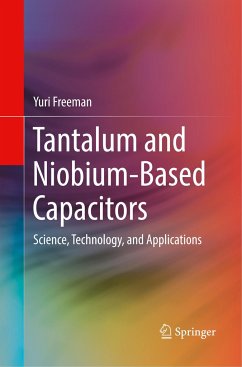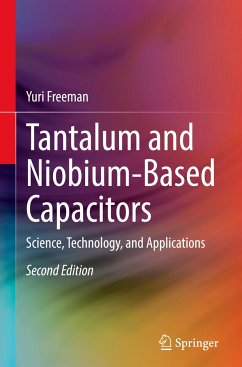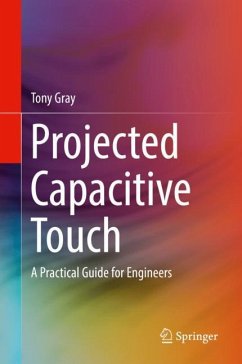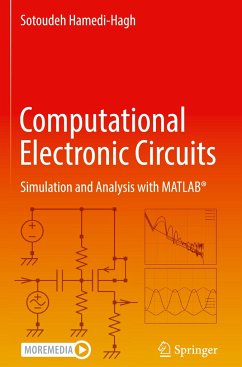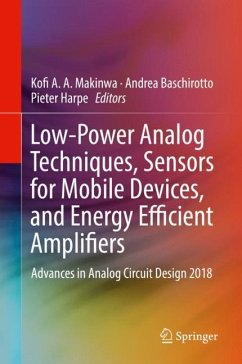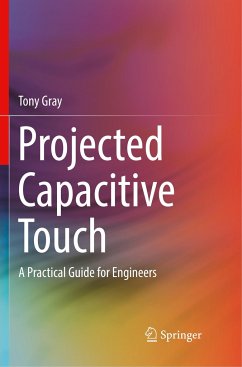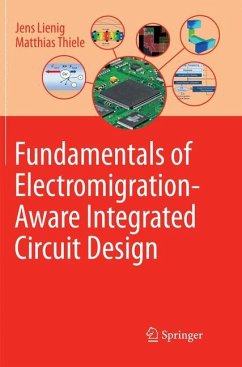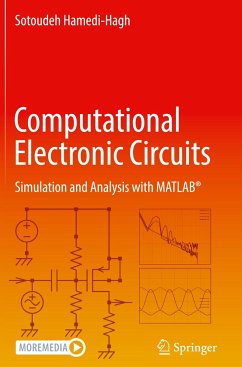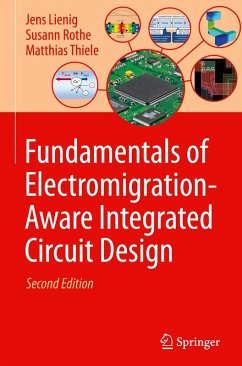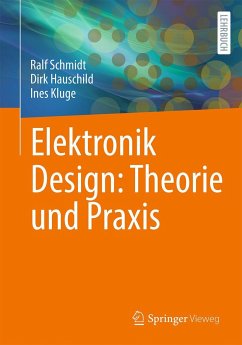
Tantalum and Niobium-Based Capacitors
Science, Technology, and Applications
Versandkostenfrei!
Versandfertig in 6-10 Tagen
65,99 €
inkl. MwSt.
Weitere Ausgaben:

PAYBACK Punkte
33 °P sammeln!
This book provides a comprehensive analysis of the science, technology, and applications of Tantalum and Niobium-based capacitors. The author discusses fundamentals, focusing on thermodynamic stability, major degradation processes and conduction mechanisms in the basic structure of Me-Me2O5-cathode (Me: Ta, Nb). Technology-related coverage includes chapters on the major manufacturing steps from capacitor grade powder to the testing of finished capacitors. Applications include high reliability, high charge and energy efficiency, high working voltages, high temperatures, etc. The links between t...
This book provides a comprehensive analysis of the science, technology, and applications of Tantalum and Niobium-based capacitors. The author discusses fundamentals, focusing on thermodynamic stability, major degradation processes and conduction mechanisms in the basic structure of Me-Me2O5-cathode (Me: Ta, Nb). Technology-related coverage includes chapters on the major manufacturing steps from capacitor grade powder to the testing of finished capacitors. Applications include high reliability, high charge and energy efficiency, high working voltages, high temperatures, etc. The links between the scientific foundation, breakthrough technologies and outstanding performance and reliability of the capacitors are demonstrated. The theoretical models discussed include the thermodynamics of the amorphous dielectrics, conduction mechanisms in metal-insulator-semiconductor (MIS) structures, band diagrams of the organic semiconductors, etc.
Since the publication of the 1st edition, principally important new results on the impact of technology on the reliability, failure mode, volumetric efficiency, and environmental stability of Solid Electrolytic and Polymer Tantalum capacitors, which dominate the market, were obtained. Based on these results, new possibilities for the reliable mission critical applications of the surface mount tantalum capacitors manufactured with advanced technologies were demonstrated. These new results added to the 2nd edition not only significantly expand the scope of the book, but also provide important corrections and clarity to the earlier published material.
Since the publication of the 1st edition, principally important new results on the impact of technology on the reliability, failure mode, volumetric efficiency, and environmental stability of Solid Electrolytic and Polymer Tantalum capacitors, which dominate the market, were obtained. Based on these results, new possibilities for the reliable mission critical applications of the surface mount tantalum capacitors manufactured with advanced technologies were demonstrated. These new results added to the 2nd edition not only significantly expand the scope of the book, but also provide important corrections and clarity to the earlier published material.





